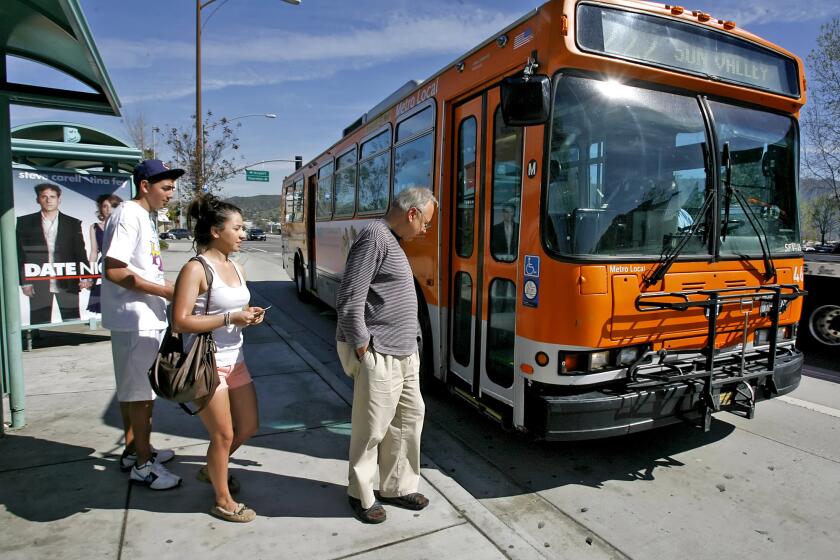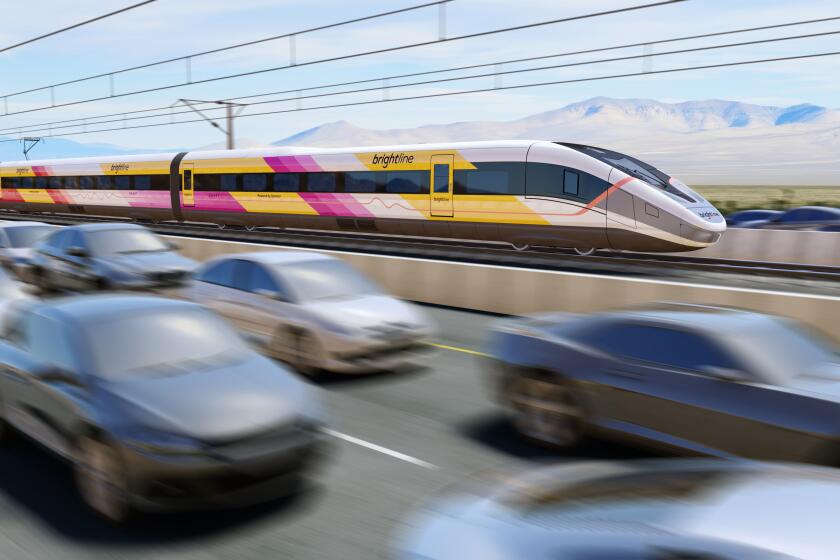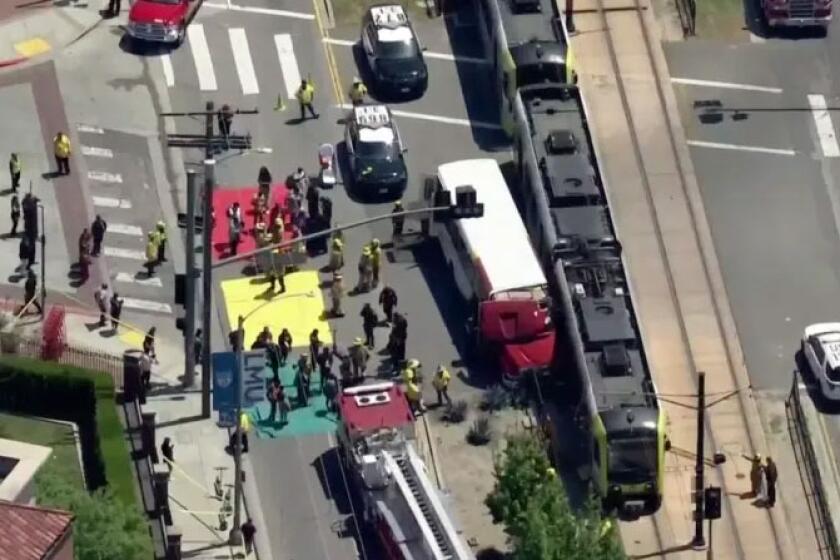New Trains Vs. New Roads
Re “Get Over This Misguided Love Affair With Trains,” Commentary, March 20:
Professor James E. Moore II exhibits a dislike of rail that transcends common reason. Where does he intend to place these new roads? What is his suggestion to provide an alternative to the private automobile? Surely Moore is aware that millions of worker-hours are lost to traffic congestion, and that untold billions of dollars in property tax revenues have been lost to the parking lot/freeway mentality of urban planning. The professor claims that rail systems are the least cost-effective method of transit. Does he use figures supplied by the Highway Users Foundation, or does he just rely on the word of the American Trucking Assn.? If Moore were to include lost taxes, lost lives and time, he might see that high-speed rail is the best investment a major city can make.
JON HARTMANN
Los Angeles
* Moore suggests that the Metropolitan Transit Authority now concentrate more on street construction, to be financed by “an ocean of new toll revenues.” Moore candidly admits that the poor “are adversely affected by the regressiveness of road tolls.”
We suggest that rather than impose further tax burdens on the poor, further road construction be financed by special benefit assessments on landowners whose land parcels are increased in value by construction of the new roads. Thus a portion of the unearned increment created by spending of public funds would be returned to the public, as an alternative to regressive levies that adversely affect the poor.
STANLEY M. SAPIRO
Malibu
* I read your story (“Troubled Ride-Sharing Program Near Collapse,” March 10) and I had to respond. I am one of the estimated 2 million Southlanders who does not drive alone to work. Commuter Transportation Services helped me discover a car-pool, which I used for a few years, and now I ride the train to work.
CTS, a.k.a. Commuter Computer, is the company that posts those familiar little blue ride-share freeways signs that list a phone number for car-pool information. It’s a shame that Caltrans has decided that after 20 years, funding for ride-share programs in Southern California will end. It’s a shame that the Herculean task to change commuter behavior in a region that has the perception of being the driving capital of the world is coming to an end. It’s a shame that a program that helps ease traffic congestion and clean the air is being dropped, just like that.
P. GUSTAF HIDALGO
Walnut
More to Read
Start your day right
Sign up for Essential California for news, features and recommendations from the L.A. Times and beyond in your inbox six days a week.
You may occasionally receive promotional content from the Los Angeles Times.






